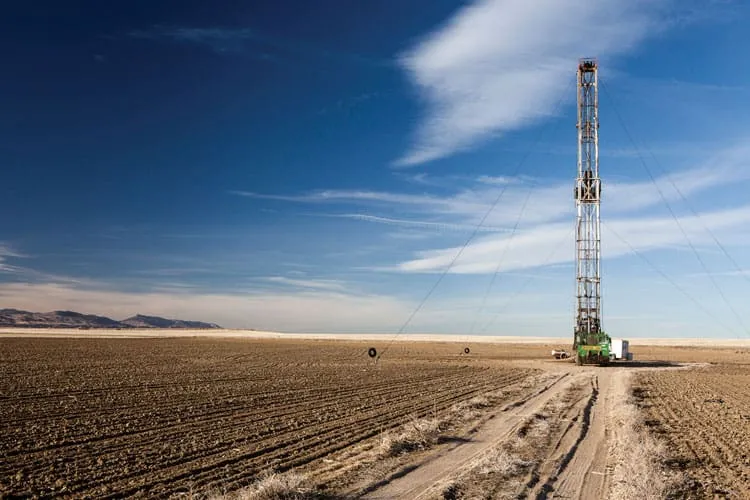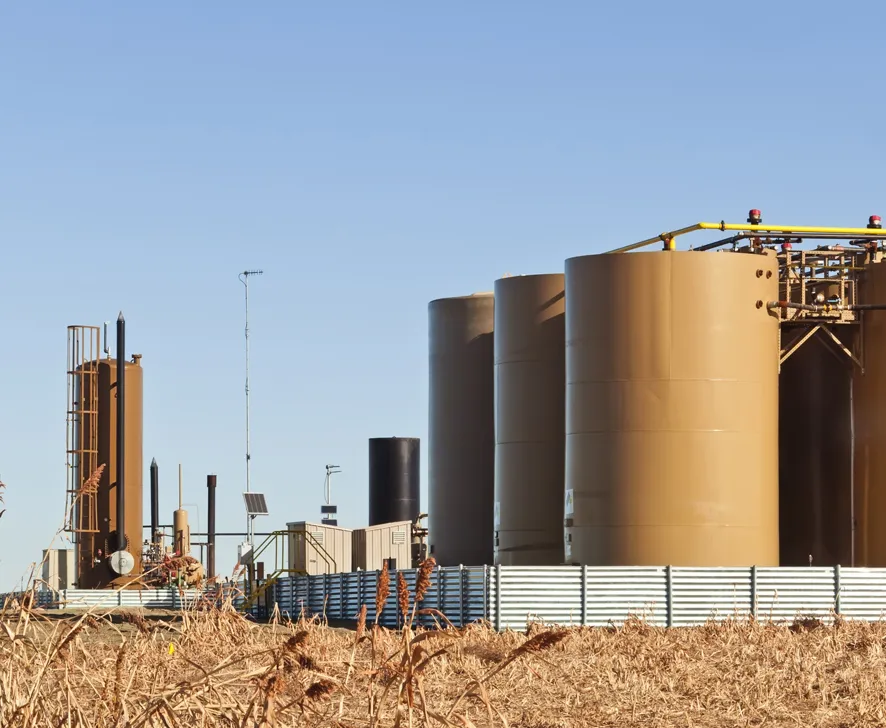Oil price collapse could cut deeply into Weld County jobs, tax revenue

WELD COUNTY — A series of oil announcements halfway around the world has cratered global oil prices, and they could reverberate through Weld County’s economy and tax coffers over the next several years.
Over the weekend, Saudi Arabia and Russia said they would increase production after OPEC and affiliated countries failed to agree to cut output to match the fall of fuel demand because of the spread of the COVID-19 virus globally.
The news shook financial markets Monday morning and drove several oil and gas stocks to lose nearly a quarter of their price. West Texas Intermediate oil was trading at $30.81 as of 2:30 p.m. Mountain Time Monday, representing a drop of just over 25 percent throughout the day.
SPONSORED CONTENT
Occidental Petroleum Corp. (NYSE: OXY), Weld County’s largest oil producer, lost just over half of its stock price during trading Monday, while second-largest Weld County producer PDC Energy Inc. (Nasdaq: PDCE) fell 48.2 percent.
Local suppliers to drilling companies were also severely hit in the selloff. DMC Global Inc. (Nasdaq: BOOM), whose oil and gas equipment segment is worth 78 percent of its net sales, fell 26.1 percent.
Morgan Bazilian, director of the Payne Institute for Public Policy at the Colorado School of Mines, told BizWest that despite various proclamations from President Donald Trump at times, the U.S. is not energy independent and very much connected to the ebbs and flows of the global energy market, including producers in Weld County.
He expects to see an uptick in mergers and acquisitions as oil companies, which generally planned their strategy with oil staying around $60 per barrel, will suddenly feel the greater weight of their debt burdens. For example, Occidential’s market cap as of close Monday was $11.33 billion, while its acquisition of Anadarko last year cost $55 billion.
“How they deal with that just a few days later (oil prices) being half of that, it’s pretty hard to know,” he said. “Their plans are in tatters.”
Bazilian expects this downturn to eventually hurt local cities that rely heavily on oil and gas to provide jobs, along with tax revenue.
A total of 64 percent of the current year’s property tax base in Weld County comes from oil and gas production, but the state has a two-year lag on taxing what is produced from the fields.
Weld County finance and administration director Don Warren said the county had already planned for a 34 percent reduction in tax receipts in 2021 and 2022 due to the downturn of production caused by the Colorado Oil and Gas Conservation Commission halting new drilling until it set new rules under Senate Bill 181.
But the county made those projections assuming oil prices would hover between $45 to $65 a barrel. If the actual price remains depressed, Weld County could end up bringing in just two-thirds of oil tax revenue than it expected.
Warren said the county could tap into a $60 million contingency fund, and about $76 million of its current budget is made up of one-time liabilities.
In the worst-case scenario, it could cut back on a discretionary tax credit for all properties, which would effectively raise taxes from 14 mills to 22 mills.
Weld County’s finances could take the short term hit if COVID-19’s spread slows down over the next several months and demand returns to normal, Warren said.
But until then, the county’s staff has to pay close attention to the rest of the market.
“If it happens to drag on until there’s a vaccine that could take up to 18 to 24 months, it could certainly have a significant impact on Weld County, but I think if that happens, I think you’re going to see a significant impact on the overall economy of the nation and the world and a pretty severe recession,” he said.
But Bazilian said there are few if any models in history that have accurately predicted the supply or demand for oil, much less when the market is so heavily influenced by health and political factors like it has been in the past weeks.
“I would just warn that in the past, (predictions on the oil markets have) always been wrong, so there’s no reason to believe that they’ll get this one right,” he said. “But it does look bad.”
WELD COUNTY — A series of oil announcements halfway around the world has cratered global oil prices, and they could reverberate through Weld County’s economy and tax coffers over the next several years.
Over the weekend, Saudi Arabia and Russia said they would increase production after OPEC and affiliated countries failed to agree to cut output to match the fall of fuel demand because of the spread of the COVID-19 virus globally.
The news shook financial markets Monday morning and drove several oil and gas stocks to lose nearly a quarter of their price. West Texas Intermediate oil…



